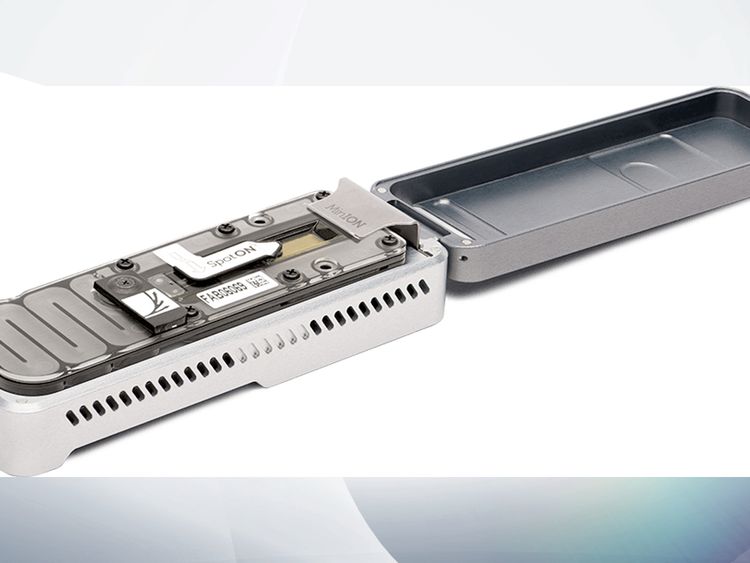Scientists have developed a new technique which they say may help them detect alien life on Mars.
A team from McGill University in Canada used miniaturised scientific instruments and specialised microbiology analysis techniques to examine permafrost – a permanently frozen layer below the Earth's surface – in the Arctic, the most similar environment to the Red Planet on Earth.
Instead of having to return samples to a laboratory for analysis – which would be almost impossible on Mars – the tool allows researchers to detect and analyse life.
"Mars is a very cold and dry planet, with a permafrost terrain that looks a lot like what we find in the Canadian high Arctic," said Dr Jacqueline Goordial, from the team.
"For this reason, we chose a site about 900 km from the North Pole as a Mars analogue to take samples and test our methods."

As part of a study published in Frontiers in Microbiology, the scientists used a portable, miniature DNA sequencing device called the Oxford Nanopore MiniON to detect life.
The researchers showed the device was capable of working under extreme environmental conditions, and that it could be combined with other techniques to detect microbial life.
"By using the DNA sequencer with the other methodology in our platform, we were able to first find active life, and then identify it and analyse its genomic potential, that is, the kinds of functional genes it has," Dr Goordial said.

"The types of analyses performed by our platform are typically carried out in the laboratory, after shipping samples back from the field.
More from Tech
"We show that microbial ecology studies can now be done in real time, directly on site – including in extreme environments like the Arctic and Antarctic."
"Successful detection of nucleic acids in Martian permafrost samples would provide unambiguous evidence of life on another world," said fellow researcher Professor Lyle Whyte.
[contf] [contfnew] 
Sky News
[contfnewc] [contfnewc]






